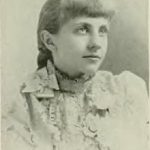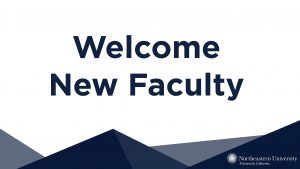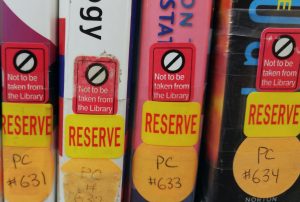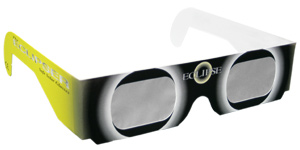An Update on Our Wikipedia Visiting Scholar
In March, we welcomed Rosie Stephenson-Goodknight as our first Wikipedia Visiting Scholar, working to improve the presence of Wikipedia articles on women and writing before 1900. Her work is supported by scholars in the Women Writers Project and Northeastern reference librarians.
Rosie will be with us, working remotely, through December of this year and has already made remarkable progress on bolstering the canon of women writers and their works on Wikipedia. She has created new pages for over 86 women and/or works by women, and has improved many others with additional information, context and citations.
Through Rosie’s work, you can now learn about Birdie Blye, a descendant of John Hancock who was a child prodigy at the piano and gave concert tours in Europe at just 11 years old, before writing articles about her travels and music criticism. You can get to know Lilian Bell, a novelist who made waves with her first fiction book, The Love Affairs of an Old Maid. Bell’s mother was such a careful editor, and tough critic, that Bell found no reason to dread her books being reviewed: “What have I to fear from the public?” she asked. “Mamma has read it.”
 You can also learn about Mittie Frances Clarke Point, a turn-of-the-century novelist who wrote 80 dime store novels under the pseudonym Mrs. Alex McVeigh Miller; Emily Thornton Charles, a journalist who founded the Washington, D.C. newspaper National Veteran; and Mary Catherine Chase, a 19th-century Catholic nun who wrote essays and literature under pen names.
You can keep up with Rosie’s work on her Wikipedia page. We look forward to seeing more of Rosie’s work throughout her time with us this year.
You can also learn about Mittie Frances Clarke Point, a turn-of-the-century novelist who wrote 80 dime store novels under the pseudonym Mrs. Alex McVeigh Miller; Emily Thornton Charles, a journalist who founded the Washington, D.C. newspaper National Veteran; and Mary Catherine Chase, a 19th-century Catholic nun who wrote essays and literature under pen names.
You can keep up with Rosie’s work on her Wikipedia page. We look forward to seeing more of Rosie’s work throughout her time with us this year.

Birdie Blye
 Whether you are new to Northeastern University community or returning from summer, the Northeastern University Libraries can help you prepare for the semester ahead. During new faculty orientation on August 29th, visit the University Libraries to meet with librarians and subject specialists to hear about the wide range of services and resources available in support of your research, teaching and publishing. A listing of library services is online under
Whether you are new to Northeastern University community or returning from summer, the Northeastern University Libraries can help you prepare for the semester ahead. During new faculty orientation on August 29th, visit the University Libraries to meet with librarians and subject specialists to hear about the wide range of services and resources available in support of your research, teaching and publishing. A listing of library services is online under  Faculty and staff, this is the perfect time to submit your
Faculty and staff, this is the perfect time to submit your 
 that looking for a book could lead to the recording of a full-length album?
This was the experience of Tirelle Barron, a New York based artist currently in his fifth year at Northeastern University, majoring in Design. As Tirelle was perusing Snell Library, he walked into the Digital Media Commons
that looking for a book could lead to the recording of a full-length album?
This was the experience of Tirelle Barron, a New York based artist currently in his fifth year at Northeastern University, majoring in Design. As Tirelle was perusing Snell Library, he walked into the Digital Media Commons